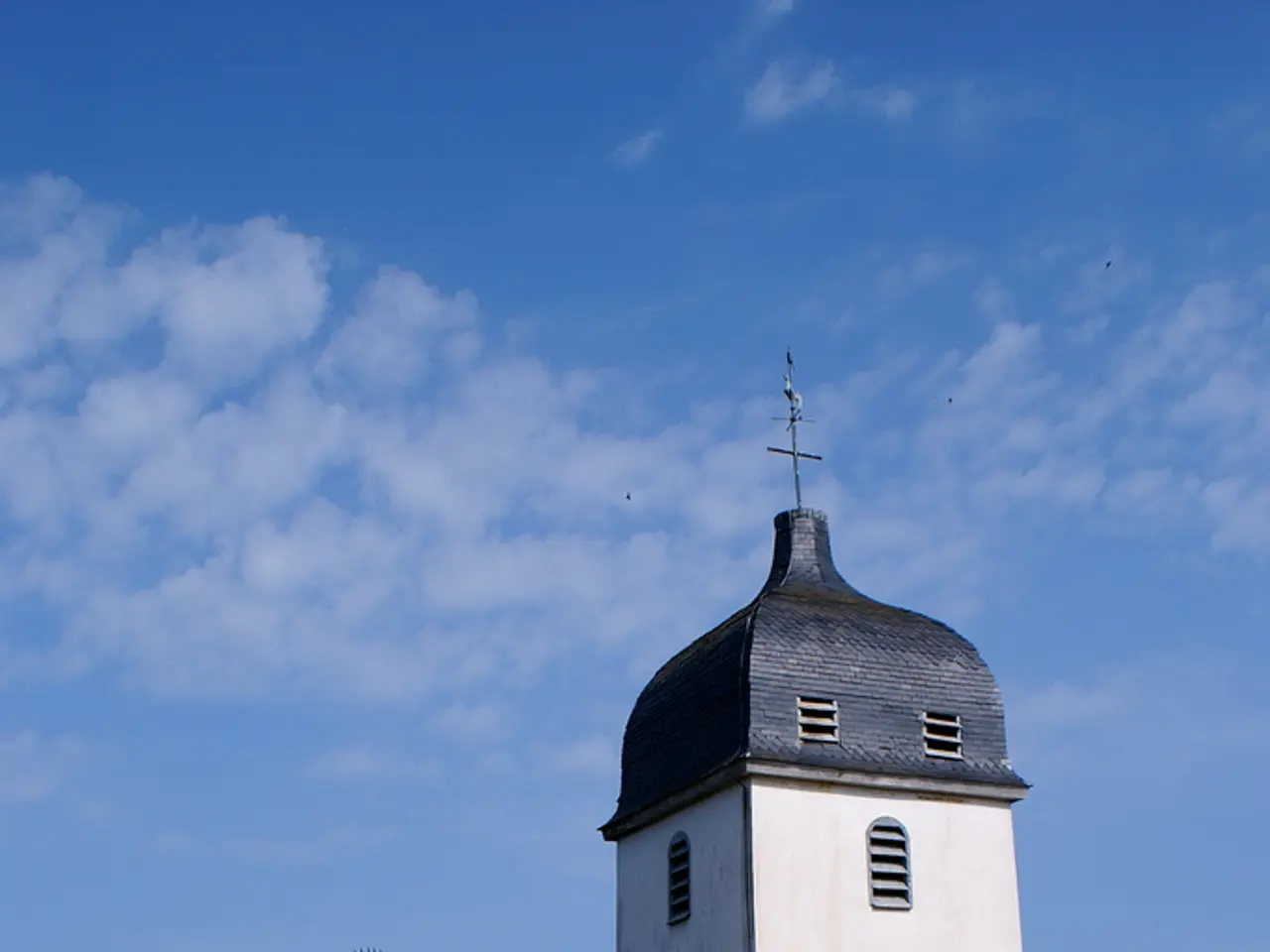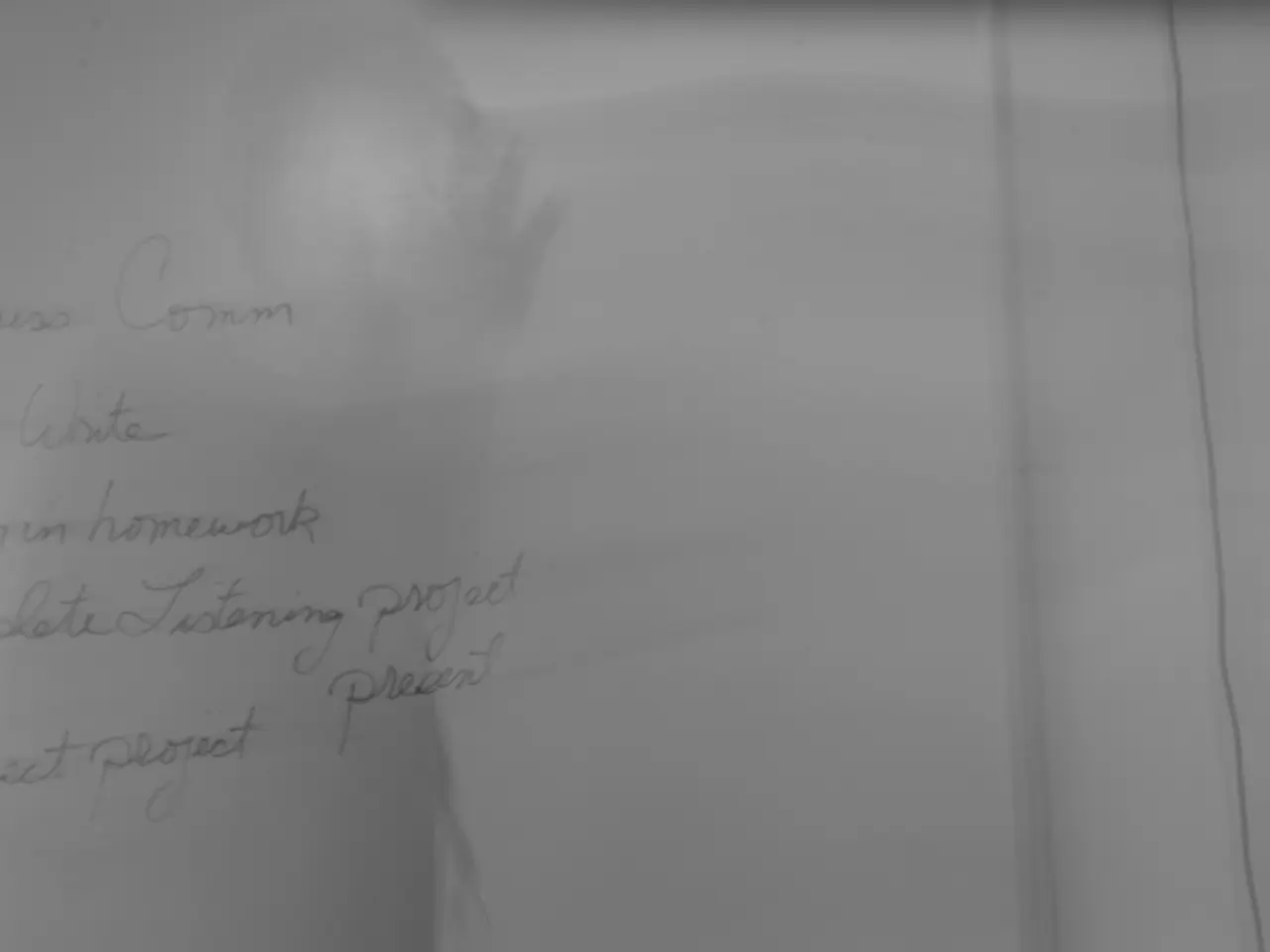NSC Moves to New Leadership Hub
In a significant move to bolster Germany's security architecture, the Federal Government has established a National Security Council (NSC) within the Federal Chancellery. The NSC, set to commence operations in 2025, will be chaired by the Federal Chancellor, Friedrich Merz (CDU) [1].
The NSC's primary objective is to improve the coordination of security policy expertise, particularly in addressing modern threats such as cyber and digital risks [1][2]. Its membership includes key federal ministers from finance, foreign affairs, defence, internal affairs, justice, economics and energy, economic cooperation and development, digitalisation, and the head of the Federal Chancellery [2].
In addition, the NSC will welcome participation from German federal states, as well as partners from the EU and NATO. This inclusive structure aims to overcome "silo thinking" and become a "hub" for integrated and networked security thinking [1][2].
Unlike the existing Federal Security Council and the Security Cabinet, the NSC will have a broader, more regularized role that integrates multiple policy areas and federal-state cooperation. It will meet both during crises and in strategic sessions to develop comprehensive responses to security threats [1][2].
The NSC's role includes providing strategic foresight and planning to identify threat scenarios, develop response options, and make appropriate preparations [3]. In crisis situations, such as the Iranian attack on Iranian nuclear facilities in mid-June, the start of the Russian attack on Ukraine in February 2022, the chaotic evacuation from Afghanistan in August 2021, and a potential cyber attack on German authorities, the NSC will meet to develop strategies for threat situations [4].
Decisions made by the NSC can be made public, ensuring transparency in Germany's security policy [4]. The departmental principle should not be circumvented by the NSC, maintaining the existing structure of decision-making within the federal government [4].
As part of the broader security architecture overhaul, plans for a National Crisis Staff of the federal government and a National Situation Center in the Federal Chancellery are also underway [5]. The rules of procedure for the National Security Council will be adopted at the next meeting of the Federal Cabinet on August 27 [6].
With the establishment of the National Security Council, Germany seeks to strengthen its security infrastructure, ensuring a cohesive, strategic management of security challenges in a complex international environment.
References: [1] Spiegel Online (2023). "Deutschland erhält Nationalen Sicherheitsrat". [Online]. Available: https://www.spiegel.de/politik/deutschland/deutschland-erhaelt-nationalen-sicherheitsrat-a-130387347.html [2] FAZ (2023). "Deutschland schafft Nationalen Sicherheitsrat". [Online]. Available: https://www.faz.net/aktuell/politik/deutschland/deutschland-schafft-nationalen-sicherheitsrat-17381882.html [3] Tagesspiegel (2023). "Deutschland schafft Nationalen Sicherheitsrat". [Online]. Available: https://www.tagesspiegel.de/politik/deutschland-schafft-nationalen-sicherheitsrat/28363342.html [4] Handelsblatt (2023). "Deutschland schafft Nationalen Sicherheitsrat". [Online]. Available: https://www.handelsblatt.com/politik/deutschland/deutschland-schafft-nationalen-sicherheitsrat/28474208.html [5] Die Welt (2023). "Deutschland schafft Nationalen Sicherheitsrat". [Online]. Available: https://www.welt.de/politik/deutschland/article204253220/Deutschland-schafft-Nationalen-Sicherheitsrat.html [6] Deutsche Welle (2023). "Deutschland schafft Nationalen Sicherheitsrat". [Online]. Available: https://www.dw.com/de/deutschland-schafft-nationalen-sicherheitsrat/a-59963015
The National Security Council (NSC) will not only focus on security policy, but also general-news topics such as the potential for cyber attacks on German authorities [4]. The inclusive structure of the NSC, which includes partners from EU and NATO, aims to provide a platform for coordinated, integrated responses to modern threats, including political ones [1].






